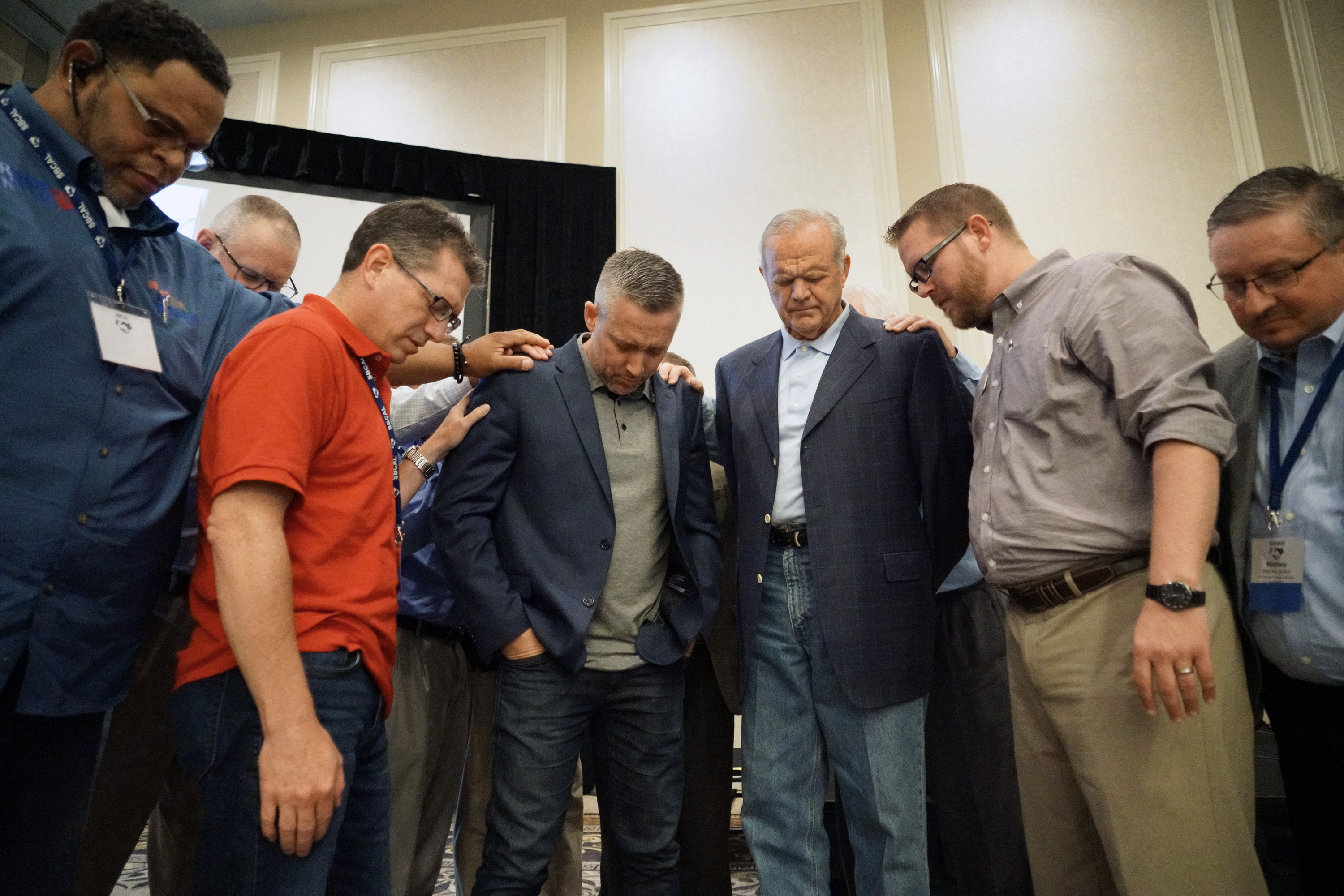
Editor’s note: October 18–25 is Week of Prayer for Baptist Associations.
COVID-19 has changed so many of our association’s ministries this year. All of our regularly scheduled events were canceled. No free dental clinic. No VBS clinic. No mission trips. No free basketball camp. No Executive Board meetings. With all of the cancellations, one might think that there was nothing for the association to do.
However, that would be a false assumption. As an associational mission strategist, I was busier during the first few months of the pandemic than ever before. As I have had conversations with fellow associational leaders, I have discovered that my experience was far from unique. Many associations were flooded with requests for assistance from their member churches. Some heard from churches that rarely (if ever) contacted the association. Many associations hosted some of their largest pastor gatherings in recent memory.
I believe the pandemic has highlighted a recent resurgence in the relevance and value of local Baptist associations within the Southern Baptist Convention. I’m pleased by this development, especially since the local association’s reputation has not always been positive.
Hard Times for Associations
The earliest Baptist associations were formed in 1707—that’s 138 years prior to the formation of the SBC. In more recent years, Southern Baptists have questioned whether associations are still relevant to churches in the twenty-first century.
The results of a 2017 study on the perceived value of Baptist associations were not encouraging:
- When asked to describe the most exciting aspect of their association, the most popular answer among Southern Baptist church leaders was, “Nothing.”
- When asked to describe the most frustrating aspect of their local Baptist association, two of the three most popular answers among church leaders were, “The association is irrelevant” and “Lack of association strategy, vision, or purpose.”
- Only 65.6 percent of church leaders indicated that their local Baptist association was a strategic partner in helping their church to fulfill the Great Commission.
- Only 58.5 percent of church leaders indicated that their church would be negatively affected if their local Baptist association ceased to exist.
Perception Has Been Improving
However, I believe the perception of associations has been slowly but steadily improving in recent years, primarily through the efforts of the Southern Baptist Conference of Associational Leaders (SBCAL) and its president and CEO, Ray Gentry.
In 2017, the SBCAL commissioned a study team to evaluate the role of the associational leader and offer recommendations at the 2018 Annual Conference in Dallas. I had the honor of serving on that team.
After a year of quantitative and qualitative research, the study team offered a list of seventeen proficiencies that were “most helpful for an associational leader to be successful, regardless of context.” In addition, the study team offered a new descriptor for associational leaders, the associational mission strategist (AMS). After adopting the study team report, the SBCAL formed a vision team to implement some of these recommendations. One of the products of the vision team’s work was a new book titled The Baptist Association: Assisting Churches. Advancing the Gospel.
Through these and other efforts, I have started to notice a renewed emphasis and interest in associational work. A small resurgence of the Baptist association has begun.
Pandemic Response
As counterintuitive as it may seem, I believe the COVID-19 pandemic has served to highlight and accelerate this resurgence for many associations.
During the early days of the pandemic, the value of local associations increased significantly in the eyes of Southern Baptist church leaders. According to a recent survey of 271 Southern Baptists, associations stepped up to assist their churches in a number of ways:
- SBC churches received more help from their local association than any other SBC entity. (#1: local association, #2: state convention, #3: other churches)
- SBC churches received a greater variety of assistance from their local association than any other SBC entity. (#1: local association, #2: state convention, #3: other associations)
- SBC senior pastors indicated that their perception improved more for their local association than any other SBC entity. (#1 {tie}: local association & other parachurch organizations, #3: state convention)
These results are very encouraging. Many local associations have experienced a resurgence in recent days, and Southern Baptists are better for it!
Reasons for the Resurgence
Why have churches suddenly become more receptive to their association?
If you had asked me this question a few months ago, I would have responded that effective associations provide value to their churches using a five-pronged strategy—local evangelism, missions mobilization, church planting, leadership development, and communication. While those strategic components are still helpful and necessary for the long-term success of an association, I believe there are other reasons behind the current associational resurgence.
- Associations are nimble. In other words, associations should be able to adapt to changing circumstances quickly. When the pandemic began, I was able to organize a pastors’ meeting within two hours to discuss the rapidly changing circumstances. More than half of the pastors in the association showed up. A few weeks later, we were able to conduct online Holy Week services, featuring different associational churches with only a few days to plan. Larger organizations simply could not pull off meetings and events like this so quickly.
- Associations are local. Every community has its own unique context. Associations can provide immense value to churches because they are a part of the same community and they understand the territory. There is great value in knowing that other churches in the area are facing similar circumstances. As churches in my association began to make plans to regather, there were some unique considerations they needed to think through. Our association was able to provide several online webinars to help church leaders consider those contextual matters.
- Associations are built on relationships. Because of the proximity to the churches in my association, I’m able to know many of their members by name. Pastors are able to get to know other pastors as well. Their wives get to know one another. Over the years, we’ve been able to develop a significant level of mutual trust. When a crisis hits, you often turn first to those you know and trust. This is one of the biggest reasons that the first call that many church leaders made was to their local association office and other churches within the local association.
- Associations can share resources easily. In the early days of the pandemic, churches responded in some creative ways. One of the most creative was to conduct drive-in services. As more and more churches began to explore this option, it became difficult to purchase short-range radio transmitters to broadcast worship services. Several churches in my association began to offer to share their transmitter with other churches who had not yet been able to purchase one. Again, this is much easier to do in a local association.
- Associations can help in a variety of ways. As I mentioned earlier, associations provided assistance to their churches in a greater variety of ways than any other SBC entity. Just during the pandemic, our association has provided help with networking with other churches, encouragement and personal soul care for pastors, general health guidelines and recommendations, CARES Act implications for churches, church regathering resources and training, online streaming resources, online giving resources, small group resources, online sermons for churches without pastors, online Holy Week services, and other resources as requested.
Southern Baptists firmly believe that we can accomplish more for the Kingdom of God when we work together. The local association is one of the oldest examples of this belief in action. I believe that many associations have been a valuable partner to their churches during the past few months. Associations have been around for more than three hundred years in North America, and I’m so thankful that they are still here for such a time as this!
Adapted from a blog post at jasonalowe.com.















